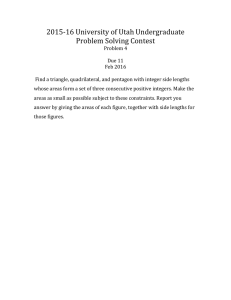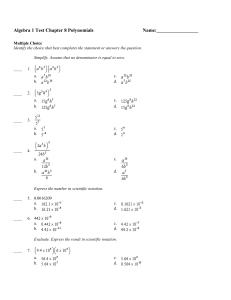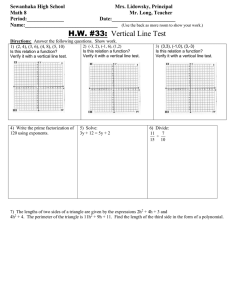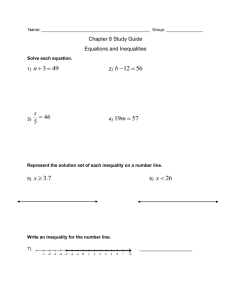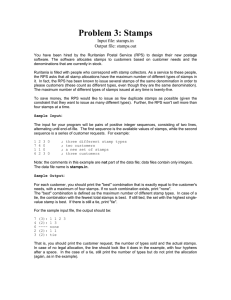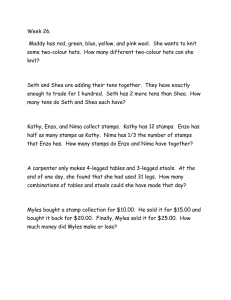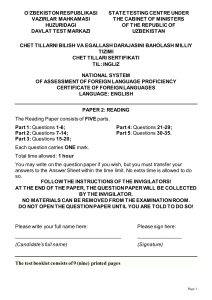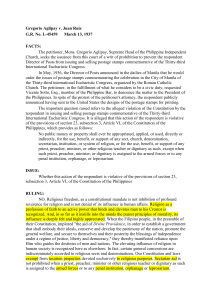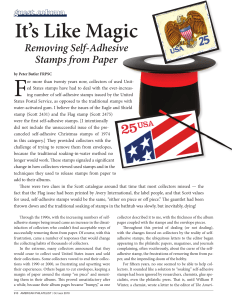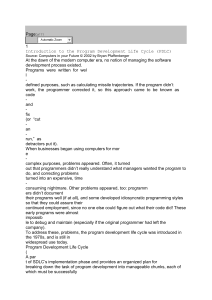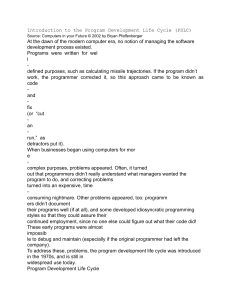Name ______________________________________________ Date _______________ Alg1 Q4 Quiz 9 Review
advertisement
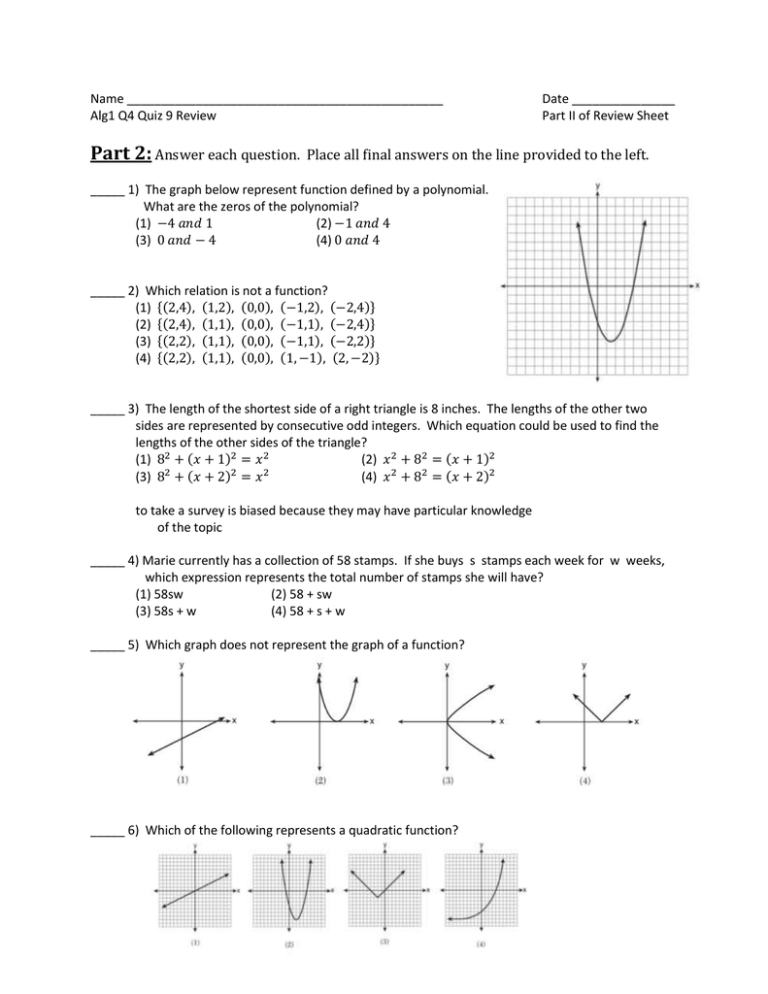
Name ______________________________________________
Alg1 Q4 Quiz 9 Review
Part 2: Answer each question.
Date _______________
Part II of Review Sheet
Place all final answers on the line provided to the left.
_____ 1) The graph below represent function defined by a polynomial.
What are the zeros of the polynomial?
(1) −4 𝑎𝑛𝑑 1
(2) −1 𝑎𝑛𝑑 4
(3) 0 𝑎𝑛𝑑 − 4
(4) 0 𝑎𝑛𝑑 4
_____ 2) Which relation is not a function?
(1) {(2,4), (1,2), (0,0), (−1,2), (−2,4)}
(2) {(2,4), (1,1), (0,0), (−1,1), (−2,4)}
(3) {(2,2), (1,1), (0,0), (−1,1), (−2,2)}
(4) {(2,2), (1,1), (0,0), (1, −1), (2, −2)}
_____ 3) The length of the shortest side of a right triangle is 8 inches. The lengths of the other two
sides are represented by consecutive odd integers. Which equation could be used to find the
lengths of the other sides of the triangle?
(1) 82 + (𝑥 + 1)2 = 𝑥 2
(2) 𝑥 2 + 82 = (𝑥 + 1)2
2
2
2
(3) 8 + (𝑥 + 2) = 𝑥
(4) 𝑥 2 + 82 = (𝑥 + 2)2
to take a survey is biased because they may have particular knowledge
of the topic
_____ 4) Marie currently has a collection of 58 stamps. If she buys s stamps each week for w weeks,
which expression represents the total number of stamps she will have?
(1) 58sw
(2) 58 + sw
(3) 58s + w
(4) 58 + s + w
_____ 5) Which graph does not represent the graph of a function?
_____ 6) Which of the following represents a quadratic function?
_____ 7) Is the mapping a relation or function?
(1) relation
(2) function
_____ 8) Given the relation 𝐴 = {(5,2) (7,4) (9,10) (𝑥, 5)} Which of the following values for x will
make relation A a function?
(1) 2
(2)5
(3) 7
(4) 9
9) Adrianne invested $2000 in an account at a 3.5% interest rate compounded annually. She made no
deposits or withdrawals on the account for 4 years. Determine, to the nearest dollar, the balance in
the account after the 4 years. [Growth y = a(1+r)x]
10) In 2005, there were 250 Booh-Bah’s in Central Park. The population increased by 6.5% each year.
How many rabbits were in Central Park in 2013?
11) _____Which relation is a function?
(1) {(0, −2), (4,10), (−1, −5), (2,4)}
(2) {(2,3), (2,5), (2,7), (2,9)}
(3) {(4,8), (2, −3), (1, 1), (2, −1)}
(4) {(0,0), (0,3), (3,1), (4, −1)}
